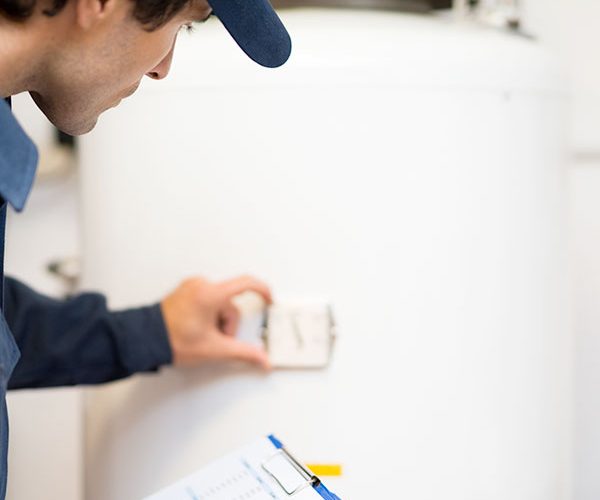What're your thoughts on The Importance of Water Heater Maintenance?

A water heater is one of one of the most important basic appliances that can be located in a home. With water heaters, you do not require to undergo the stress of heating water by hand every single time there is a requirement to take a bath, do the laundry, or the recipes. There is constantly a possibility that your water heating system would act up as with many mechanical tools.
It is very important to keep in mind any little breakdown and also tackle it quickly prior to points get out of hand. Most times, your hot water heater starts to malfunction when there is an accumulation of sediments as a result of continuous usage. As a preventative measure, periodic flushing of your water heater is suggested to avoid debris buildup and stop functional failure.
Common hot water heater emergencies as well as exactly how to take care of them
Leaky hot water heater container.
In this situation, you must turn off your water heating unit, allow it to cool down, and very carefully look for the resource of the issue. At times, all you require to do is to tighten a few screws or pipe links in instances of small leakages. If this does not function and also the leakage continues, you could need to utilize the services of a service technician for a suitable replacement.
Rising and fall water temperature level.
Your water heating unit could start creating water of different temperature levels usually ice cold or hot warm. There may be a requirement to change either the thermostat or the home heating system of your water heater.
Insufficient warm water
It may be that the water heating unit can't support the warm water demand for your home. You can update your water heating unit to one with a larger capacity.
Discolored or stinky water
When this takes place, you need to recognize if the concern is from the water or the tank source. You are certain that it is your water heating unit that is malfunctioning if there is no funny scent when you run chilly water. The smelly water can be brought on by rust or the buildup of microorganisms or debris in the hot water heater container. As soon as you see this, you can attempt flushing out your container or changing the anode if the trouble persists. The feature of the anode is to clean bacteria from your container. Given that the anode rod replacement requires a thorough knowledge of your water heating system, you will certainly require the help of a specialist.
Final thought
Some house owners disregard little caution and minor faults in their water heater system. This just brings about further damages as well as a feasible complete break down of your home appliance. You must take care of your hot water heater mistakes as quickly as they come near prevent even more expenses and unneeded emergency difficulties.
With water heating units, you don't need to go through the anxiety of heating water by hand every time there is a requirement to take a bath, do the laundry, or the recipes. Your water heating unit could start creating water of different temperature levels generally ice chilly or hot hot. It may be that the water heating system can't sustain the hot water demand for your apartment. If there is no amusing smell when you run cool water, then you are particular that it is your water heater that is malfunctioning. The stinky water can be created by rust or the buildup of bacteria or debris in the water heater container.
Common Water Heater Issues and What You Should Do
What Type of Water Heater Do You Have?
Before we begin it’s first important that you identify the type of water heater you have on your property. There are two main types of water heaters out there: conventional and high efficiency.
Both of these types of products typically use either gas or electricity to heat power. There are also solar water heaters that use a thermal collector on the roof or yard to heat the water.
While these models are not as common, they can cut heating costs in half. In this article, we will focus on conventional and high efficiency.
How Do My Electric and Gas Water Heater Work?
Though they look similar, electric and gas water heaters work very differently. It’s important to know their basic function because often problems can be specific to the heating source.
In the electric model, a thermostat on the side of the machine detects the temperature of the water in the tank. When the temperature needs to rise electricity flows to a heating element suspended in the water.
Gas models also use a thermostat device — typically with a mercury sensor at the tip and an additional sensor called a thermocouple. The thermocouple detects whether the pilot light is on and controls the flow of gas.
When the thermostat drops below the appropriate level gas is released which becomes ignited by the pilot light. The flame heats the bottom of the water tank which causes hot water to rise and cold water to drop.
This natural circulation continues until the water reaches the desired temperature. Then, the thermostat triggers the gas control valve to shut off the flow of gas.
What Are the Most Common Issues and How Do You Fix Them?
https://happyhiller.com/blog/common-water-heater-issues-and-what-you-should-do/

As a serious reader on The Importance of Water Heater Maintenance, I assumed sharing that excerpt was a good thing. For those who enjoyed reading our blog posting please do not forget to pass it around. Thank you so much for your time spent reading it.
Need fast action? Dial.